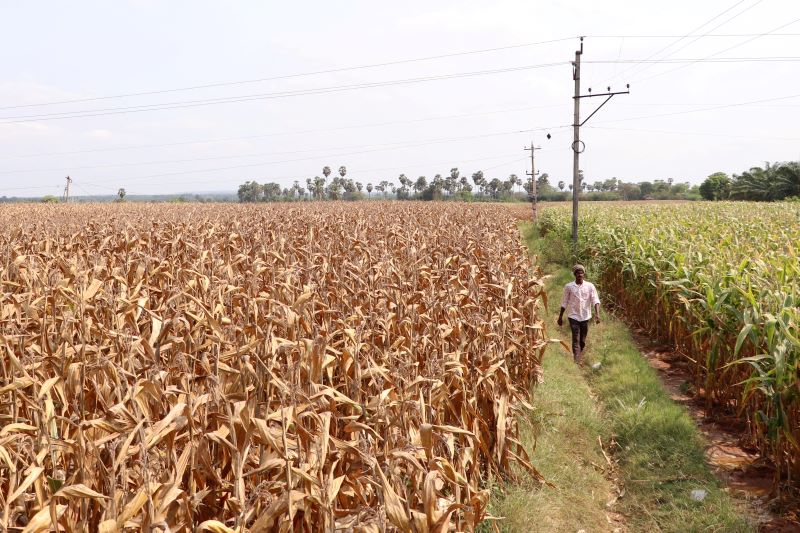Comment: Negotiations on food and agriculture have moved too slowly, while special initiatives fail to hold countries accountable on their commitments
Dhanush Dinesh is the founder of Clim-Eat, a think-and-do-tank for food and climate.
When the Stade de France in Paris is filled to capacity, it holds 81,400 people. You would then need another 2,484 to reach the number of badge-wearing participants at last year’s UN COP28 climate change conference in Dubai. This illustrates the sheer size of what was the world’s most important climate-focused event in 2023.
But it also begs the question, do these annual ‘mega-gatherings’ actually deliver anything?
One thing is abundantly clear: despite almost three decades of COPs and ballooning attendance, our greenhouse gas emissions continue to rise, and the world continues to warm.
Process hijacking purpose
My colleagues and I at Clim-Eat – the think-and-do-tank for food and climate that I founded in 2021 – recently published a paper examining the efficacy of COP summits, specifically in relation to food and agriculture. We found several failures.
Firstly, negotiations on food and agriculture have moved at a snail’s pace over the past 17 years. In spite of numerous meetings, workshops, submissions and decisions, there has been literally no real-world impact as a result.
Secondly, the trend of COP host countries – known as Presidencies – launching special initiatives on specific issues of interest has achieved little. These initiatives receive plenty of media attention when announced but amount to little more than virtue signalling.
Rich nations meet $100bn climate finance goal – two years late
For example, at the launch of COP21’s 4p1000 Initiative, France’s then-Minister of Agriculture said it could reconcile aims of food security and the fight against climate change. Today, the initiative has yet to report anything on the positive climate action it sought to create.
The same goes for Morocco’s COP22 initiative on Adaptation in African Agriculture. It no longer mentions its ambitious target of raising $30 billion to support farmers – presumably because it hasn’t been reached. There are plenty of other examples of special initiatives being quietly ushered out of the spotlight.
Unwarranted optimism
Let’s remember that COP negotiations first recognised agriculture as the key to solving climate change in 2006. It then took six years to agree on the next steps. Then, only in 2022, 16 years after the initial point, did the negotiations agree that “socioeconomic and food security dimensions are critical when dealing with climate change in agriculture and food systems.” Sixteen years to build a sentence to combat a third of global emissions.
This suggests there’s little reason to be optimistic about the Emirates Declaration on Food and Agriculture, a special initiative launched at last year’s COP28. Signed by 159 countries, it called for action to adapt food systems to climate change, but the summit’s official negotiations on food and agriculture failed to acknowledge the declaration or reflect its priorities. The declaration itself is a creative collection of various adjectives and adverbs, reaffirmations and goals to ‘strengthen’ commitments. And six months after its launch, it is not clear whether it has led to anything at all; placing faith in its outcomes is utterly fanciful.
The path forward
This cycle of the UNFCCC and COP Presidencies applauding special initiatives in the short term without holding countries responsible in the long term has to stop. The hamster wheel of inaction continues to spin.
But we can slow it down and perhaps get off the wheel altogether. To do this, my colleagues and I concluded that the UN needs to:
- Reform the UNFCCC process to prioritise measurable results and impacts, shifting its role to that of a watchdog ensuring action from all actors rather than merely organising large, costly meetings.
- Make COPs leaner and less frequent/hold them every other year, reducing participant numbers and focusing on productive meetings.
- Increase transparency regarding the financial costs of COPs, participation and emissions, to hold the UN accountable.
Implementing these recommendations will not be easy. It means changing entrenched ways and tackling entrenched interests. There will be push-back.
But as the UN’s mid-year climate talks begin in Bonn this week, observe the promises made with little follow-through, the unwarranted yet celebratory atmosphere filling the air – largely destined to be forgotten. Notice that when the clapping has stopped, and the initiators are no longer in the spotlight, they will slink back into the shadows, waiting to resurface onto the next grand stage at COP29 in Azerbaijan.
Read More

